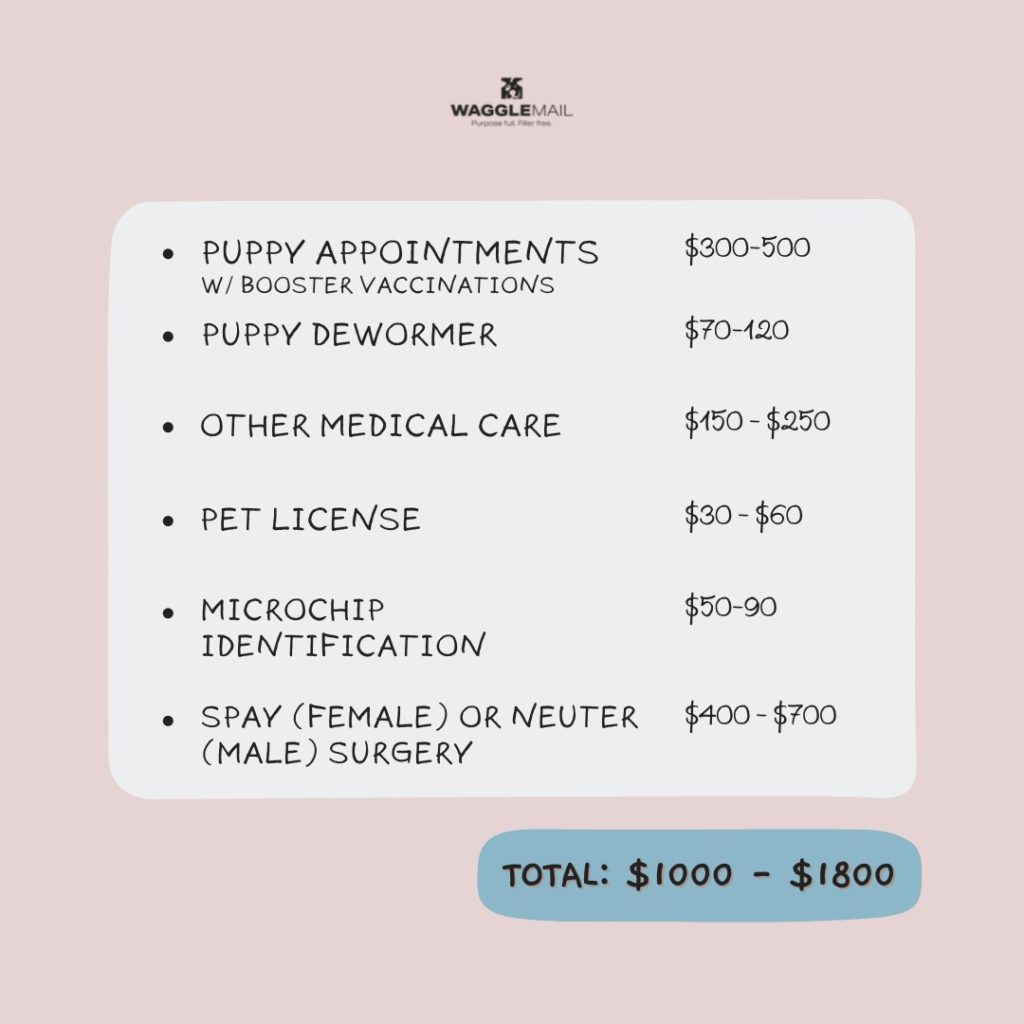Bringing Home A Puppy
When you get a new puppy, some things are out of your control like how old they are when you adopt them. If possible, (I know its’ hard!) try to leave them with their own litter as close as possible to 8 weeks of age, or even later. Your puppy’s breeder or rescue may recommend postponing picking up your bundle of joy in an effort to help avoid unnecessary anxiety. It’s a lot for them to leave their mom and siblings, and everyone just wants the smoothest transition possible for them.
In preparation for your new puppy’s arrival, here are some important things to work through:
GET YOUR HOUSE (AND FINANCES) IN ORDER
Is everyone on board?
Remember to take into consideration not just the humans of the household, but your other furry, or fur-less, family members. It can take a village to care for a puppy depending on your work and household dynamics. I know it’s exciting to bring a puppy home, but do keep in mind the personality and needs of all of your one-of-a-kind pets. If you have other animals in the house, they may (or may not) be too keen about the new addition, so take it slow! Maybe your senior cat Garfield does not want to play with little furrball Fido just yet-or ever. To avoid confrontation, make sure to provide safe places for everyone to escape to for a break when needed. It can take weeks to get a fussy feline to accept your pup, so try to:
Expert Tip: No one likes to be looked at when using the potty, and eating poop is gross. Keep litter boxes where only cats can access them!
- Keep your pets safely separated and slowly introduce with visual cues and smells
- Use baby gates for division
- Swap toys and blankets to introduce smells to each other
- Provide hiding places up high and out of reach, like a bed on top of your wardrobe
- Use a cardboard box or create a division with a cat-sized hole so they can escape and still keep watch from the safety of their burrow
- Maximize the use of natural calming feline pheromones, like Feliway
Do you have children at home?
It is just as important to teach and train your human children on how to interact with dogs. Most of us likely cannot fathom our trusted companions from biting an innocent child, but usually they aren’t innocent-in dog language that is. Here are some quick tips:
- Keep children away during your puppy’s meal times; let them eat in peace.
- Like stealing toys from other kids, so too is it rude to steal toys from dogs. Teach them to leave Fido’s toys alone.
- Teach them not to get in your dog’s face-literally.
- Make sure your puppy has a safe location where they can take their much needed naps in peace and quiet, and escape from any loud and scary noises.
- Show them how to pet a dog gently and to not play rough.
- Do not let them sit on, climb, or ride your dog.
To turn a positive spin on things, there will be a ton that your children can do with your puppy! Once they understand how to be kind to the new addition, they can be shown what appropriate games can be played. Who doesn’t love a good game of hide and seek?
Have you calculated potential costs?
Their love is priceless but having a dog is a huge, lifelong financial commitment. We personally think that they are worth every penny, but make sure to be prepared for the expected and the unexpected. There are quite a few veterinary and maintenance costs to consider, and this will vary and change as your puppy grows, just like our curated Waggle Mail boxes. To help you set aside some funds for the expected initial costs of your puppy’s health care, here is a general summary of what to prepare for one you bring your puppy home:

To help you be prepared for those unexpected costs of having a dog, take the time to research whether pet insurance might be a good fit for you. For those avid savers out there, perhaps simply setting aside an amount each month into an emergency savings account would suffice instead.
Have you puppy proofed your home?
Make sure to puppy proof your home and don’t be scared to get down to their level to sniff out possible danger!
- Remove or conceal small objects
- Cover any electrical cords
- Keep plants safely out of reach
- Secure garbage can and compost lids
- Lock up hazardous liquids in your house and garage
- Safely store medications and supplements (for people and pups)
- Restrict access to unsafe areas
Have you set aside time?
When you first bring your puppy home there is going to be an adjustment period for them to get used to their new surroundings. Try to keep in mind that although you might be super excited about their arrival, they are dealing with major sensory overload. Not to mention this might be their first time away from their mom and/or littermates. All new pets need time to adjust to their new situation, and a puppy is no different. This period of time is called a decompression period. For some, it may be a week or two, but not all pups are the same. Rescue pups may take as long as 6 weeks before they become really comfortable in their new home.
Let your puppy explore their new digs while being safely supervised so they can more quickly adapt to their new environment, and begin establishing that loving bond with you and their new loving fur-ever home. Creating a tranquil environment is one of the most important things you can provide for your new puppy as calmer dogs are easier to handle and train, and are less likely to become aggressive and fearful.
Stay calm and be patient.
While your puppy is going through this decompression period, do not have any expectations of them. The best thing you can do is provide a loving, calm space where you can exercise their body and mind, everyday. This is the fun part!
- Setup a routine to ease the anxiety of not knowing what comes next
- Promote gradual safe & supervised play
- Reward any good behaviour with praise, pats and treats
Expert Tip: Start new introductions as one-on-ones with other humans. Once they seem comfortable with this, introduce some healthy, fully vaccinated pets that are safe to be around puppies.
It is still important to encourage your puppy to interact with other people, experience new places and activities, and encounter other animals or species. Letting your unique dog develop at their own rate is important. If your dog experiences fear during these sensitive times, forced exposure might only aggravate that fear, making it worse.
Puppies play hard and sleep hard. Make sure to set up your new pups’ sleeping quarters in a quiet area of the house where your puppy can get adequate sleep. Trust us, they’ll need it-and so will you.
Have you booked your puppy booster appointments?
Puppies rely on their mother’s milk to acquire important maternal antibodies to tide them over until they can develop their own. Because these natural antibodies wear off at different times, puppies should receive three booster vaccines to kickstart their immune development.
Expert tip: There is no medical reason to delay puppy classes or social exposure until their vaccination series is completed as long as they are not exposed to sick animals, basic hygiene is practiced, and they are on a high quality diet. So get social!
This means setting aside the time to take your puppy in to see their friendly family veterinarian for their 8 week, 12 week and 16 week puppy wellness appointments. These appointments are important for monitoring your puppy’s growth and development, socializing them to new environments, boosting their immune system with vaccinations, and warding off parasites with prescription dewormers.
We don’t want to get too far ahead of ourselves, but there is a lot more time and attention that will need to be invested towards your puppy’s training, exercise, love and attention, grooming, cleaning up after them, letting them out for frequent bathroom breaks, feeding them 3-4 meals a day…. With a little preparation, we know you and your family will make excellent puppy parents.
If you haven’t picked up all of your puppy must-have essentials, or are looking for puppy-safe products and helpful training tools from our vet to your doorstep, make sure to subscribe for our vet-curated Waggle Mail dog subscription boxes.
Need more helpful tips and tricks on training your puppy? Subscribe to our Waggle (e)Mail for more resources and must-knows for puppy parenting.

